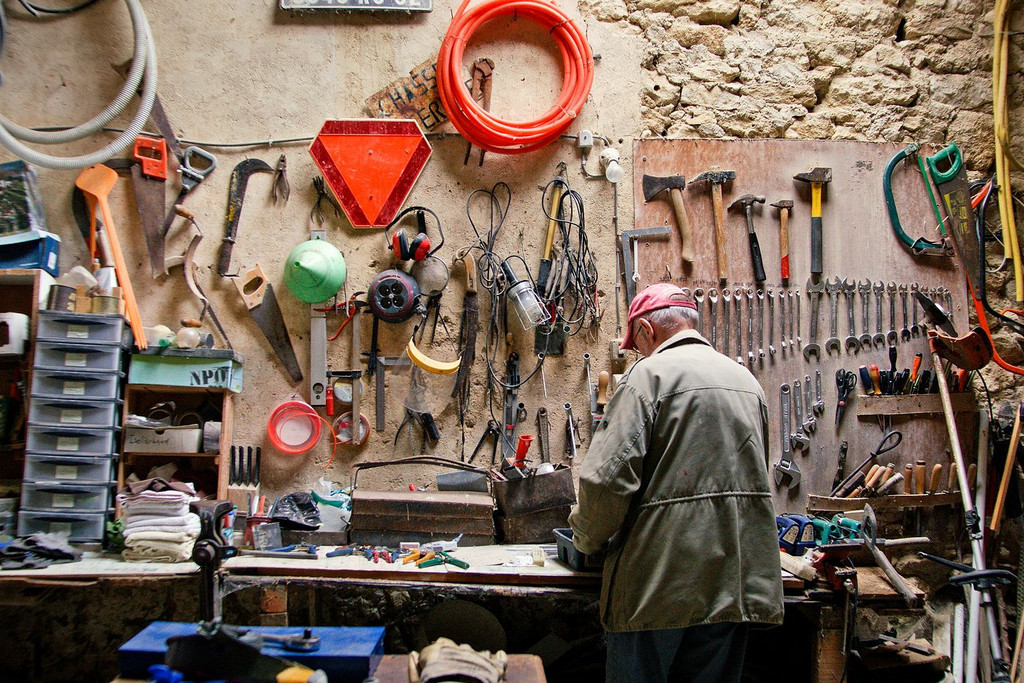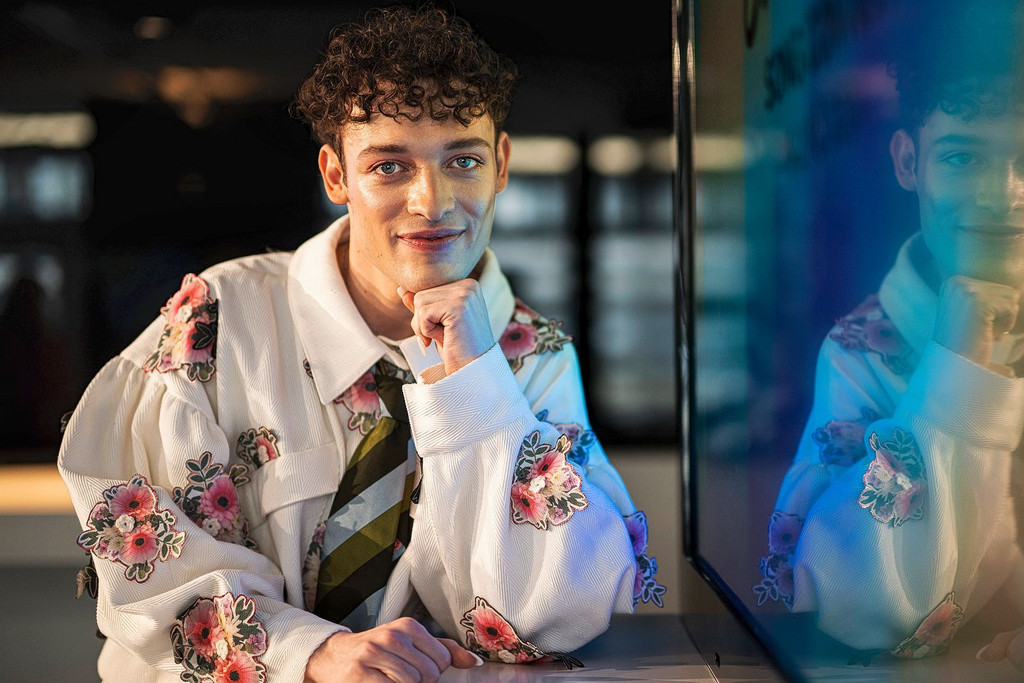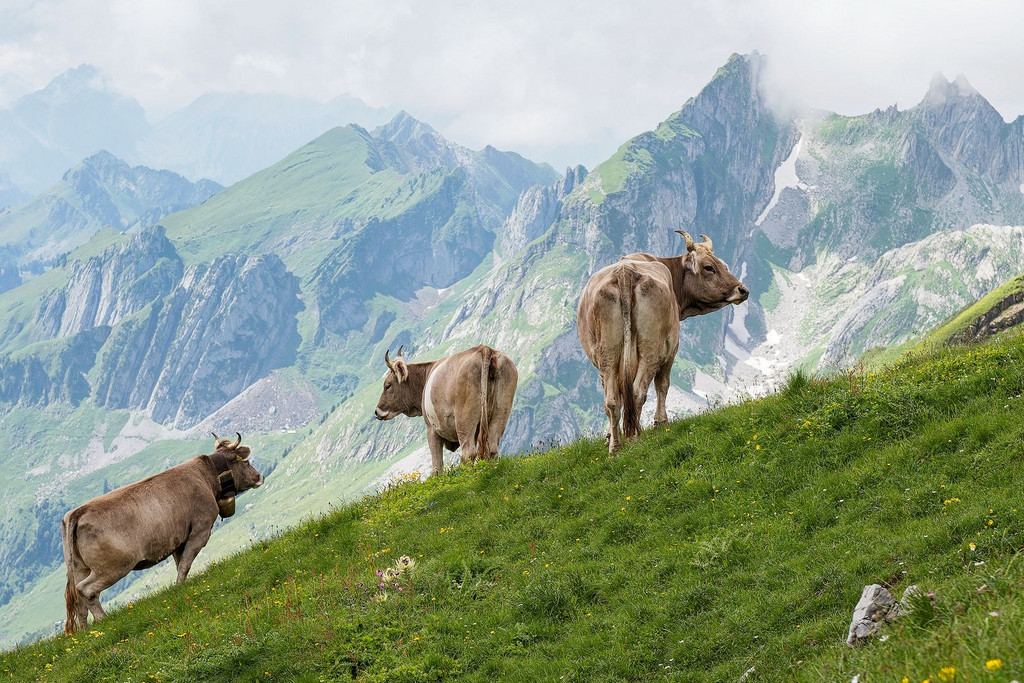
- Culture
“I leave out the somersaults these days”
29.01.2016 – Marko Lehtinen
He’s pretty much Switzerland’s most famous clown. And he seems to be unstoppable. At 80 years young, Dimitri still spends every evening on stage. We sat down to talk about his milestone birthday. From his home in Ticino, Dimitri tells us about his family dynamics, an encounter with Charlie Chaplin and what he thinks of modern “comedy”.
“Swiss Review”: Dimitri, you celebrated your 80th birthday last autumn. How are you feeling?
Dimitri: I’m feeling great, thank you.
You’re still on stage, although you’re getting on in years. You move, jump and dance. How do you manage it all?
On the one hand, I rehearse every day for up to two hours. I practise my acts, for example, juggling or doing handstands. I even do headstands regularly, which is actually quite good; it gets the blood flowing to the brain. So I stay fit. On the other hand, I still do about 150 performances per year. That’s a lot and it keeps me in shape. But really, I’m just very lucky to still be healthy and to have the success that I have.
Does success keep you healthy?
To a certain extent, it does. Success is wonderful, but it also keeps me on my toes.
You’re currently touring with your solo act “Highlights”. Are all the old numbers in it?
Most of them. Some are even fifty years old now. There are a few acrobatic numbers, like somersaults, that I leave out.
You don’t just perform as a solo artist. You also have your family act “DimiTRIgenerations”, where you perform alongside your two daughters Nina and Masha, your grandson Samuel and one of Nina’s stage partners. Are you able to put family dynamics aside at work?
I could, but it’s nice when a certain family dynamic can be felt on stage. And when we rehearse, we’re professional enough to overlook the fact that daughter is working with father. When it comes to that, we’re absolute professionals.
How does this dynamic play out on stage?
We have a certain presence about us that comes through in everything we do. It’s in our eyes, in the intimacy of our act. I think that if you put five actors on stage who have no relation to each other and have them play a family, you can feel the difference.
That sounds almost too good to be true. Doesn’t the father-daughter dynamic creep in during rehearsal, or maybe in moments where things aren’t really going as planned?
No, really, we hardly ever run into problematic situations. We have a very harmonious relationship. We’re very tolerant of each other. I’m sure the material we’re dealing with also helps. While we are serious and disciplined about our work, we also laugh a lot together and enjoy ourselves. The humorous nature of our work keeps us in a good mood.
You’re the patriarch of the family. Do you determine which numbers are in the act, or does everyone get a say?
Everyone contributes their ideas, so it’s not just my act with everyone else simply performing in it. But there are certain situations where I make the decisions as the old, wise one. If we’re stuck, or in disagreement about something, I usually have the last word and everyone listens to me, just as I would listen to someone who has much more experience than me.
Were you a good father when your kids were little?
I certainly could have been a better father. I was still young and inexperienced myself. But at least I was a funny father. That’s for sure. We had a lot of fun.
So you’re a funny person?
I think so.
You’ve been touring with your solo act since 1959. Was there any specific highlight in your professional career?
No, I can’t think of any specific highlights. My whole life has been a highlight. I have a special memory for each city I’ve performed in. Each and every stage is associated with a certain atmosphere or a specific anecdote. For example, at one of my recent shows, I noticed that two women in the front row were whispering the whole time. After the show, they came up to talk to me. It turned out that one woman was blind and the other was telling her everything going on during the show. It’s a wonderful feeling to know that someone who can’t see still gets something out of my show. Or when a small child asks me for an autograph after the show and says “You were cool,” that’s a real highlight for me.
The fact that children respond to you and not just adults who have known your act since the 70s shows how timeless your sense of humour is. And children are always honest.
Absolutely, children always tell the truth. And yes, I think my art is timeless. It speaks to people of all ages.
And speaking of the 70s, while performing with the Circus Knie in the 70s, you had a memorable encounter with Charlie Chaplin. Tell us about that.
That was a very special experience for me. It would have been for any artist of my kind. For clowns and comedians, Charlie Chaplin is the best there is. He’s basically our king. And I found him to be a wonderful person. He watched my performance, and then we chatted in one of Circus Knie’s trailers. It was a nice encounter in a laid-back atmosphere, and it made me happy that he liked my performance. That was in 1970. When I performed at Circus Knie three years later, I ran into Chaplin again. But this time, he was already a quiet, old man. He hardly said a word. So in retrospect, I was very happy to have met him back when he he still had his presence of mind.
You say Chaplin was the best there is. Did he also have an important influence on you personally?
Of course, how could you not adore Chaplin? His silent films are brilliant. They are poetic, human, timeless and extremely funny.
But your great role model was the Swiss clown Grock.
That’s right, he was my biggest idol. But there’s another Swiss artist who is very important to me. His name is Gaston and he’s a wonderful artist. He can be seen at Christmas time in the Circus Conelli in Zurich. He is a great artist, and continues to be one of the few to continue on with the tradition of timeless clowns. He really should be world famous, but he’s too modest for that.
What makes a clown timeless?
A timeless clown is endearing, poetic and subtle, even naive and childlike. And he’s never vulgar or pushy. Both Grock and Gaston embody these things.
Is the classic clown also sad and melancholy?
I think that’s more of a cliché. Of course there are melancholy, sobbing clowns. But I see that as a different style than the endearing, childlike clown.
You think of yourself as funny. But are the Swiss funny?
Certainly, the Swiss have a lot of humour. Otherwise, there wouldn’t be so many great Swiss comedians. And the audiences are also very good.
Is there is a typical type of Swiss humour?
I don’t think so. There are subtle differences to German humour that come through in the language. Emil, one of my friends, recently told me some of his new acts didn’t really go down well in Germany. That’s mainly due to the subtleties of the language. But basically, the Swiss laugh about the same things as everyone else in Europe.
Humour in general has changed. Today, the younger generation of comedians casually and seemingly spontaneously reveal personal, intimate details of their lives. And they call it comedy. What do you make of it?
It’s not my style. It’s usually fast-paced, pushy and not very poetic.
Maybe this type of fast-paced humour is the poetry of our time?
Absolutely. It’s true to life and and is current and up to date. It certainly has its qualities, and I don’t want to pass judgement on its artists. It’s just not my style.
You’re always on the go. You have a family, a private theatre and a performing arts college. You play ten instruments and like to paint. You’re also interested in politics and are quite active. Would you say you’re just energetic, or would you say you’re restless?
I might be a restless person, but I like it that way. I thrive on a certain amount of stress. But I still take time every day to read the newspaper.
On paper?
Yes. I know nothing about computers.
Can you ever just sit back and do nothing?
There are in fact times when I do nothing, but they’re short-lived. I don’t need rest.
You love to paint. Yet when you’re asked about it, you always say you’re not a painter.
Right, I’m not a painter. I’m a painting clown. That’s an important nuance. Although I paint a lot and even showcase my work. But when I see the works of great painters in museums, I’m not presumptuous enough to call myself a painter. There’s no comparison.
You are one of the most important, if not the most famous clown in Switzerland. At the ripe old age of 80, what advice would you give young artists?
I tell every young artist that he or she should get a feel for their greatest talent, their own special gift, and that they should develop it, whether that’s music, acrobatics or the tightrope. It’s better to do one thing really well than everything fairly well.
Do you have any dreams that you still want to make happen?
I have many dreams, desires and projects that I would like to make happen. But because of my age, I limit myself to the ideas that are still realistic. One of them is a feature film. The idea of having my own film has been dancing around in my mind for 20 years, and this year, I’m going to fulfil the dream and make the film.
Is that already a definite thing?
Yes, I have the director, the actors and a producer and the script is already finished. It will be a comical film without words, with me in the role of a station manager named Molinari. We’ll begin shooting soon.
A life in the spotlight
He’s a clown, mime artist, acrobat and musician. The artistic career of Dimitri Jakob Müller, born 18 September 1935 in Winterthur began in 1959, when he first took to the stage with his own solo act. His big breakthrough came in 1970 when the trained potter made his first guest performance in the Circus Knie. At the same time, he opened his own theatre in Verscio, Ticino, and in 1975, he founded the “Accademia Teatro Dimitri” performing arts school. Since 2006, the father of five has also performed with his family act, first known as “La Famiglia Dimitri” and now “DimiTRIgenerations”. “La Famiglia Dimitri” even made it to Broadway in New York. In 2014 Dimitri received the Swiss Lifetime Award for his life’s work. When he’s not touring with his family act or with his current solo act “Highlights”, Dimitri enjoys spending time at his home in Borgnone, in the Swiss canton of Ticino.
(LEH)












Comments